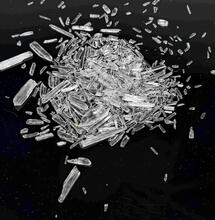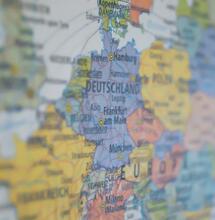Hillary Clinton Suggests Loosening Federal Pot Regulations to Spur Research

Reclassifying pot discussed, says relaxing laws would allow better therapies to be developed
Reclassifying pot discussed, says relaxing laws would allow better therapies to be developed
Presidential candidate Hillary Clinton declared that marijuana policies in the United States should be changed so that scientists would have increased access to the drug for research purposes.
"I do support the use of medical marijuana," said the Democratic frontrunner, "And I think even there we need to do a lot more research so that we know exactly how we're going to help people for whom medical marijuana provides relief."
As she addressed the crowd at a town hall meeting at Claflin University in South Carolina on Saturday, November 7, Clinton said that reducing federal restrictions on the drug would encourage the type of scientific investigation that would legitimize medical Cannabis as a mainstream drug. She also supported the idea of reclassifying marijuana to increase such access, despite not having previously been considered a pro-pot candidate.
Of course, decades - or even centuries - of anecdotal evidence exist regarding the efficacy of the plant as treatment for hundreds of ailments, in addition to peer-reviewed, legitimate medical and scientific research from all over the world that proves what patients have reported for so long: medi-weed works for many people.
However, some of the "why" and "how" it works remains murky, which is exactly why more research needs to be conducted. The main obstacle blocking such discoveries is the fact that Cannabis remains a Schedule I drug in the United States, a federal classification that keeps it out of the hands of most potential researchers.
Clinton got it half-right, appearing to ignore the wealth of legitimate research that has already been conducted, explaining, "The problem with medical marijuana is there is a lot of anecdotal evidence about how well it works for certain conditions. But we haven't done any research. Why? Because it is considered that is called a schedule one drug and you can't even do research in it."
Many in the pro-pot community have been referencing such studies as proof that Cannabis should be moved to a lower drug schedule in the Controlled Substances Act, as it is a far safer and more effective drug than federal regulations might suggest.
Schedule I substances are, according to DEA.gov, "drugs with no currently accepted medical use and a high potential for abuse. Schedule I drugs are the most dangerous drugs of all the drug schedules with potentially severe psychological or physical dependence."
Other examples of Schedule I drugs are heroin, peyote and lysergic acid diethylamide (commonly known as LSD or acid.) The scheduling numbers are assigned to each drug in order from most to least potential for abuse, in addition to the danger that they represent to society. Thus, Schedule V drugs are considered to be those that are the least dangerous and addictive.
The vast difference between pot policies in each state is also creating discord and distortion in the way that medical marijuana is not only perceived but also implemented. Clinton touched upon this point, saying, "What I do want is for us to support research into medical marijuana because a lot more states have passed medical marijuana than have legalized marijuana, so we have got two different experiences or even experiments going on right now."
So-called "de-scheduling" of the entire Cannabis plant - not just plant parts, such as CBD - from Schedule I to at least II would increase access for research scientists at an overwhelming rate, allowing the scientific community at large to share the burden of finding answers that could revolutionize medi-weed as a therapy.
Additionally, new medical studies could be conducted, including much larger numbers of patients, improving the medical marijuana policies that have already been implemented around the country and positively influencing those that have yet to be written.
Legal recreational weed was not among the presidential hopeful's suggestions.
Check out the video from PBS Satellite:



